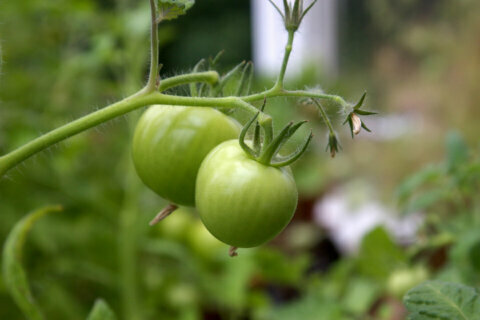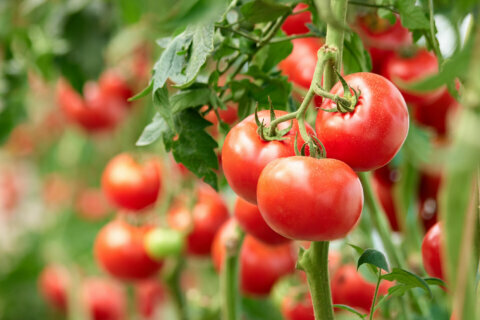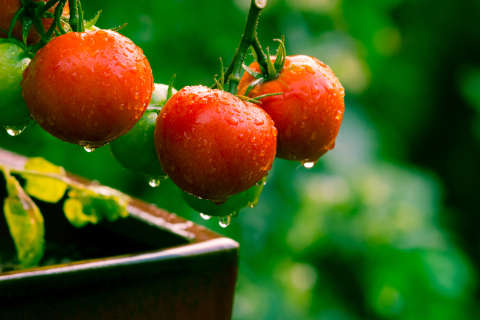The many moods of moss
Michelle in Olney writes: “Our lawn has moss mixed in with the grass this year. Which should come first: moss elimination or weed control?”
You can do both at the same time.
Moss needs three things to survive: shade, acidic soil and an excess of moisture. The soil pH is the easiest variable to tackle. If you have the soil tested professionally, the report will come with a recommendation of how much agricultural lime to apply to bring things up to neutral, which is a pH of 6.5 to 7.
But there’s a better option if you know someone with a wood stove. Hardwood ashes are excellent at raising soil pH, and it’s one of the only useful things you can do with wood ash. Just use 1/3 more ash than the recommended amount of lime. The ashes also contain some neat micronutrients that are not present in lime.
Massive moisture = much moss
Michelle also wrote: “This is the first year we’ve noticed it in our front yard mixed in with the grass. This part of the lawn includes a rain drainage area that runs in front of all of our yards on the way to an underground culvert down the street. We have lots of weeds due to the large amount of water that was flowing this summer, which we try to control by digging the weeds out.”
Moss loves excessive moisture, but lawn grasses do not. And this soppy situation needs to be remedied before your lawn can thrive. It sounds as if it’s too big a drainage problem for core aeration to solve. Your best option is to hire a landscaper to install drain tiles to take the water away in a more efficient manner or change the grade to divert the flow.
At least weeds are easiest to pull in wet soil ….
Neighborhood march against moss
Mossy Michelle in Olney described serious drainage issues that affect many of her neighbors’ lawns, as well as hers, making most remedies short-term at best.
Her best option is to speak with all of the affected lawn owners and get estimates from several different landscapers on remedying the situation with drain tiles or other water diversion tactics. If everyone chips in, the cost should be nicely affordable.
Just don’t delay. The next 30 days are the perfect window to reseed any areas that need to be dug up to make the solution a lasting one.
Properly composted commentators have no objectionable odor
Diane in College Park made a rookie mistake. Per my advice she tried to order a load of bulk compost to spread on her lawn, but instead received a load of unfinished horse manure.
She writes: “The smell was unbearable and there were loads of gnats and flies. I always thought that properly composted manure had no smell. The owner of the company said the smell was no problem. If compost made from horse manure stinks, IS there a problem?”
There sure is, Diane. The excessive nitrogen in unfinished horse manure can “burn” plants, and the manure may be full of weed seeds that would otherwise be destroyed during the complete composting process.
Be it compost or composted manure, never accept bulk material that has any kind of a bad odor; always trust your nose.
Where have all the beetles gone?
Doug in Adamstown writes: “I think this is the first year that I’ve not seen a single Japanese beetle. Usually my beans, berries and corn are loaded with these guys, and I can pluck a hundred a day into a bucket of soapy water.
“The only thing I’ve done different is to grow some four O’ clocks, which are supposed to be toxic to them,” Doug said.
I’ve only seen a few beetles this year in my own garden, Doug. Could be a cyclical thing or the result of too much rain drowning the grubs. Either way, count your blessings — and your roses.
The toxicity of four o’clocks is a subject of much debate, but they are loaded with some pretty potent naturally occurring chemicals, some of which have antibiotic activity.
Just keep an eye on your tomatoes if four o’clocks you grow. The gigantic sphinx moth that pollinates the flowers when they’re open at night lays eggs that give birth to the dreaded tomato hornworm!
Mike McGrath was editor-in-chief of ORGANIC GARDENING magazine from 1990 through 1997. He has been the host of the nationally syndicated public radio show “You Bet Your Garden” since 1998 and WTOP Garden Editor since 1999. Send him your garden or pest control questions at MikeMcG@PTD.net.







